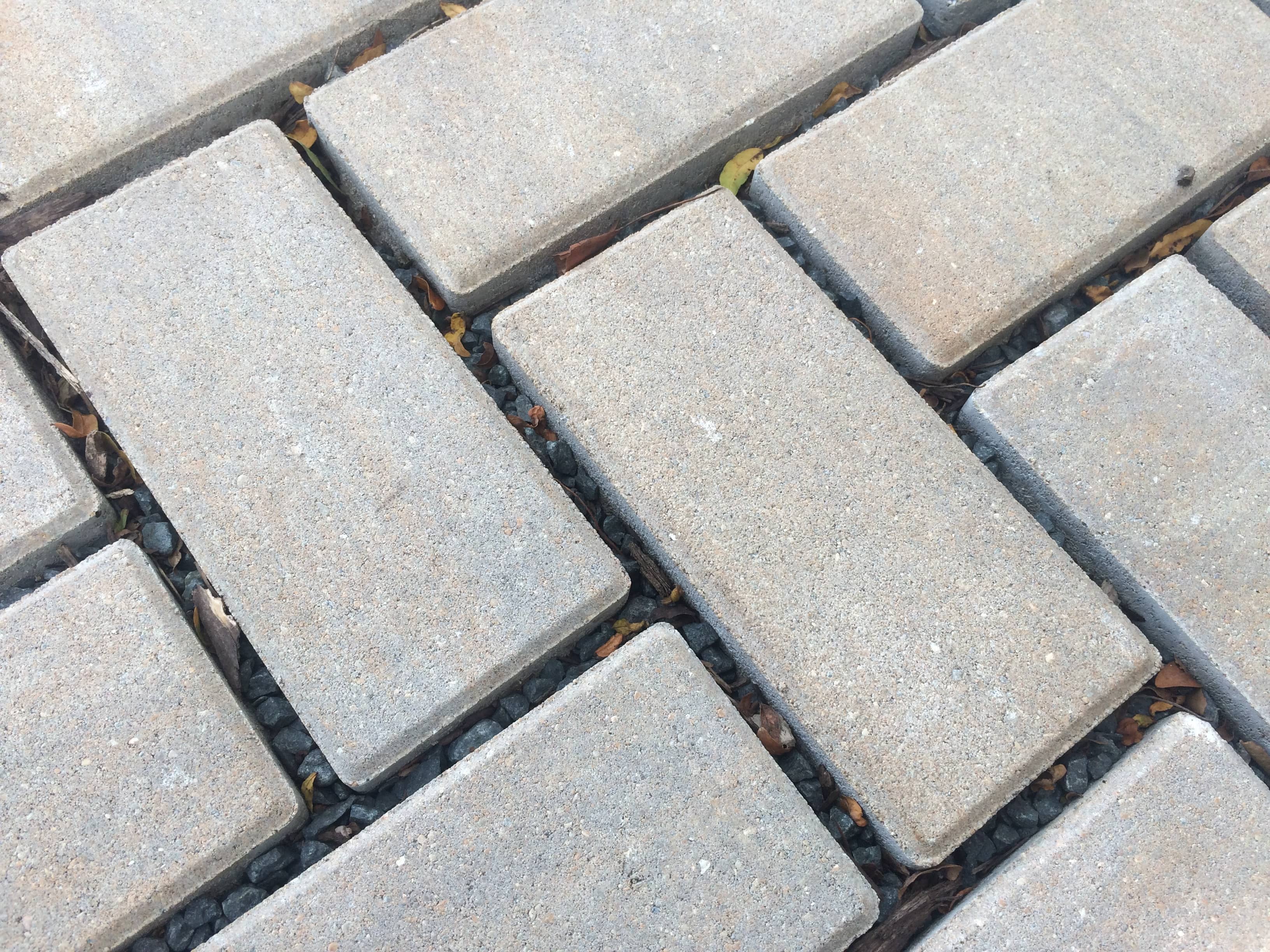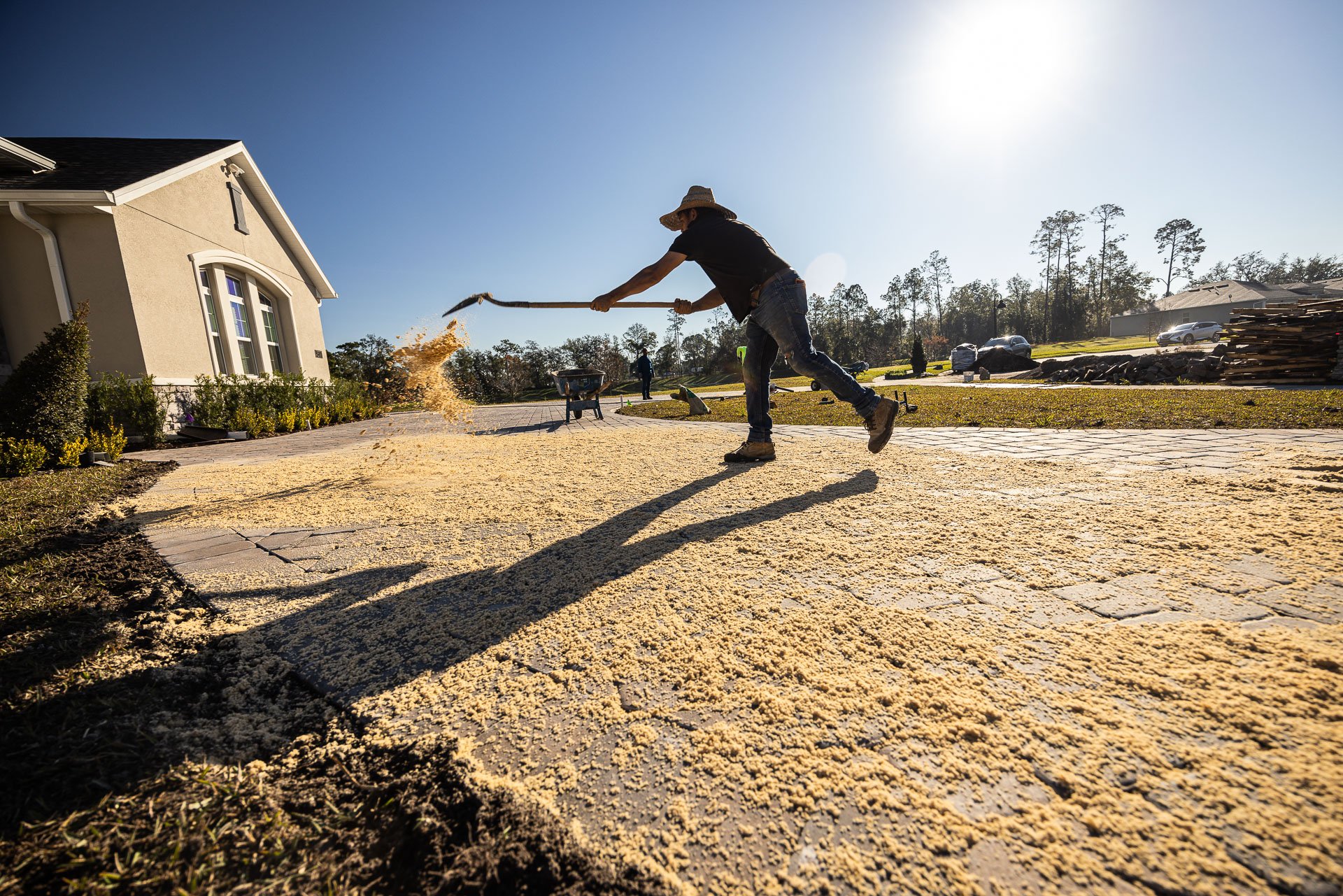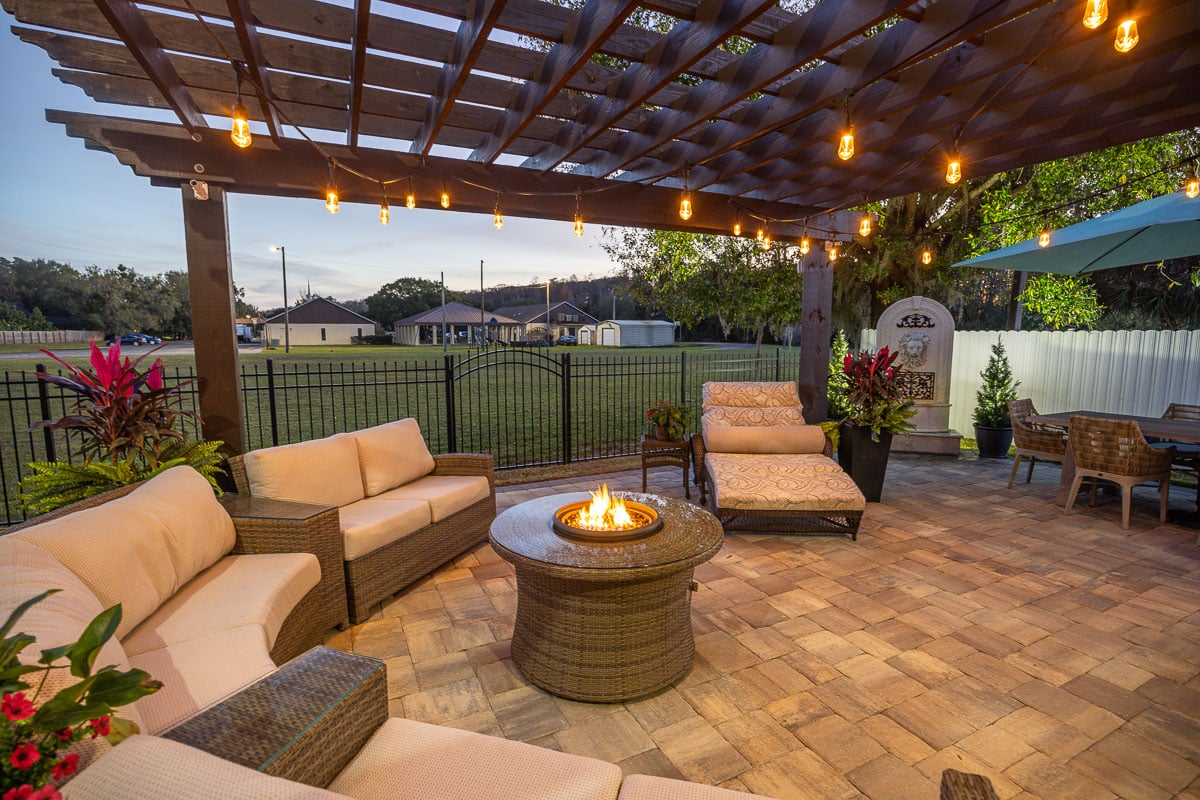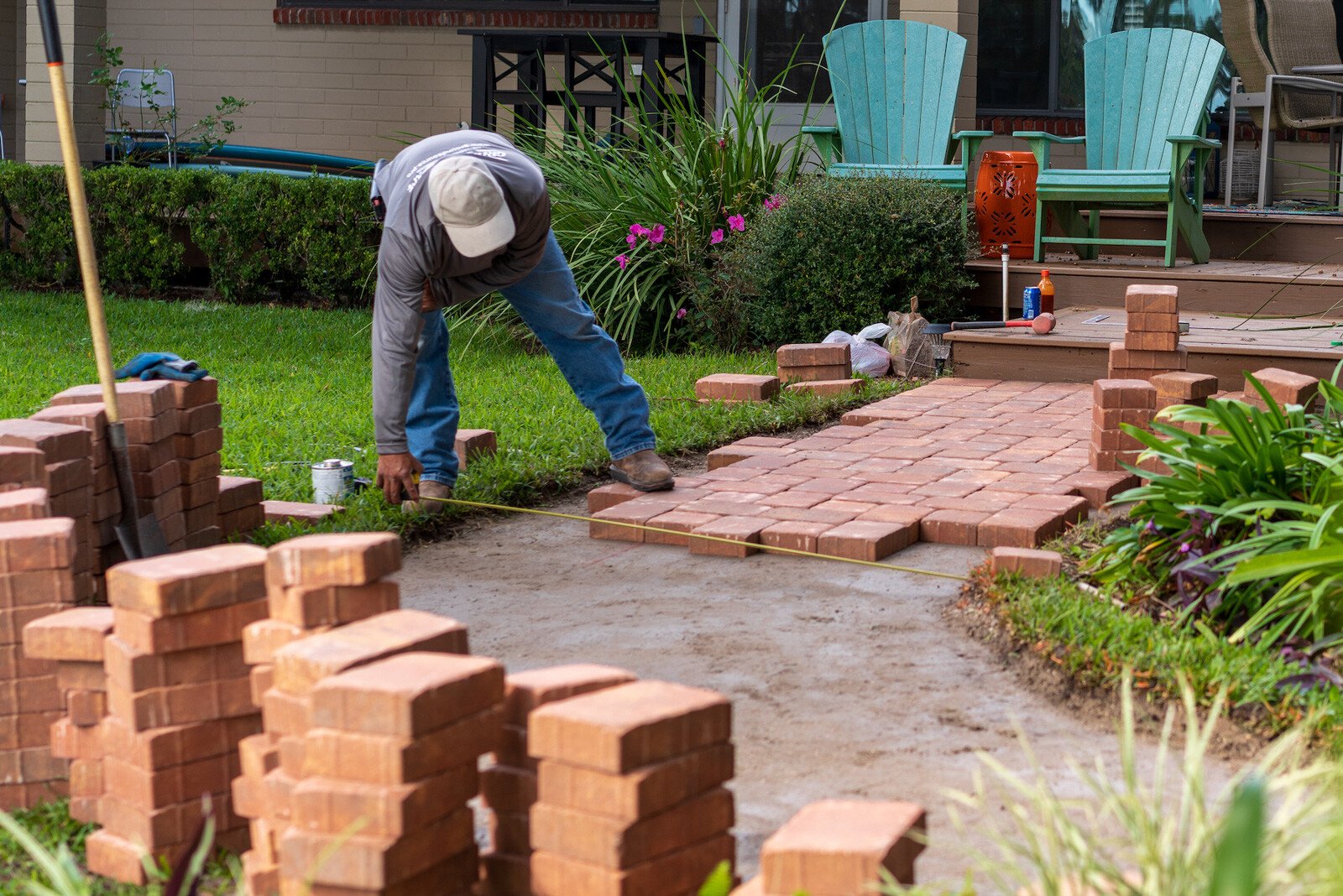It’s hard to beat that new paver feeling, when you linger in your driveway a few extra minutes just to admire how great it looks.
Or, in rarer situations, you move your bed out to the patio because you can’t bear to leave the beauty of it all.
Paver projects add a huge visual boost to your home, but they won’t continue to look great without occasional sealing.
What is paver sealing? How often do you need it?
Have a seat on your pretty paver patio (or maybe not so pretty if it really needs sealing) and let’s take a look.
First, What is Paver Sealing?
Paver sealer is a protective coating that helps keep pavers from fading and protects them from stains, weather, and invasive elements like weeds and ants.
Your pavers go through a lot out there — foot traffic, cars driving over them, blazing hot sun, pounding rain. Sealing them helps protect them from the outdoor elements and keeps them looking great.
There are numerous types of paver sealers available on the market, each with distinct appearances and purposes.
Film-forming sealer features a gloss or semi-gloss finish, providing a wet look. Non-film-forming paver sealant features a less shiny, matte finish.
Some sealers are designed for non-slip surfaces, such as patios next to pools.
Your paver installer can help you decide which type is best for your exact pavers and needs.
Your paver installer will seal your driveway, patio or walkway after installation. But it doesn’t last forever. You’ll need paver sealant re-applied every few years throughout the lifetime of your pavers.
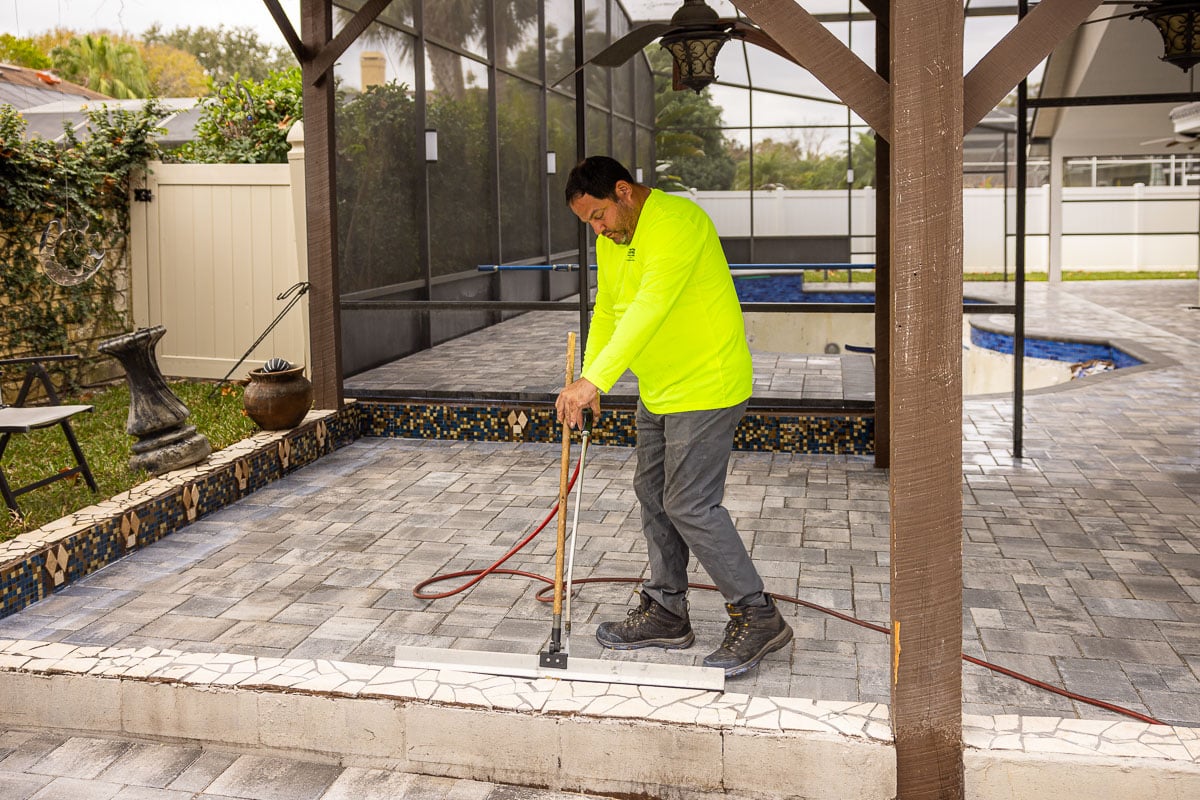
Why is it important to seal pavers? Lots of reasons:
Paver Sealant Protects from Stains
Concrete pavers are porous and will absorb stains if they’re not sealed. Paver sealant helps repel oil, grease, grime and other stains.
Protection from Fading
Without paver sealer, the sun’s harsh rays will fade your pavers’ great color.
Appearance
Sealing pavers enhances their color and texture. You can also choose a glossy or matte finish.
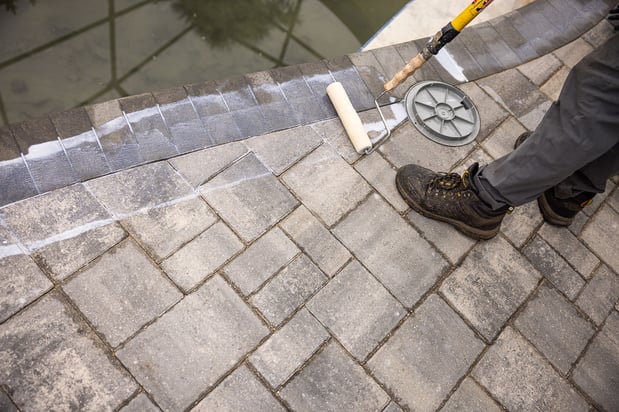
Easier Maintenance
Sealed pavers are easier to clean and maintain. Dirt and spills can be easily washed away — less work for you to keep them looking great.
Weed Prevention
Sealing pavers keeps dirt out. If dirt settles into those cracks between the pavers, unsightly weeds sprout.
No Ants Allowed
Paver sealant deters pesky ants. They love building mounds in those spaces between pavers.
Boost Your Property Value
A well-maintained, sealed driveway or patio increases your curb appeal and property value.
Prevent Efflorescence
A cool word, but not a particularly appealing look. Sealing pavers helps prevent efflorescence, the white, powdery substance that can sometimes appear on the surface of pavers.

Long-term Cost Savings
Sealing pavers can save you money in the long run by preventing damage and reducing maintenance costs.
How Long Does Paver Sealing Take?
It depends. A typical paver patio or driveway could take as little as four hours or extend to two to three days.
It depends on the age and condition of the pavers, whether they have stains or calcium deposits that need to be removed first, if there are drainage issues, or even the weather conditions on the day of the job. The water pressure at your home or property can also affect the speed of the machinery.
How Often is Paver Sealing Needed?
Plan on resealing pavers every three to five years.
How often you need it depends on several factors, including whether the area is covered or exposed, if it's under a screen enclosure with UV protection, and if it's located under a tree or in a humid area.
Before crews apply sealer, they’ll pressure wash your pavers, fill in any sand gaps as needed, and then apply the protective paver sealant.
Can You DIY Paver Sealant?
You can. But why? Sure, you can probably do it for cheaper, but it’s not an easy job.
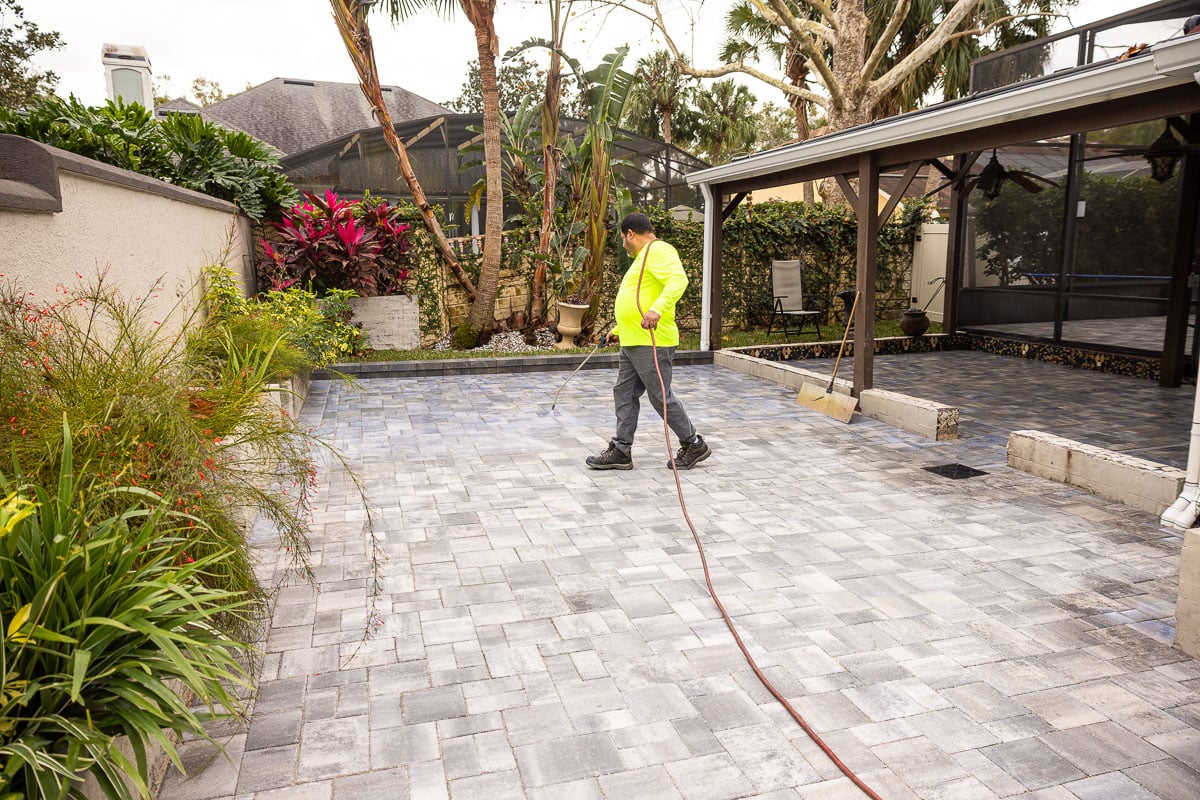
Do you really want to spend hours out in the hot sun? There’s special equipment to buy. Sealing pavers involves crucial preparation steps that you don’t want to mess up.
Pros have the right tools, knowledge, and experience to ensure the job is done right.
Time for Paver Sealing? Trust Ground Source
If you moved your bed out to your paver patio because you can’t bear to be away from the beauty, paver sealant will protect it from your bedtime snack spills.
Need pavers and paver sealing in Central Florida? Make sure it’s done right.
We’re paver experts, but our skills don’t stop there. We’re with you every step of the way as you plan your perfect outdoor space.
Are you ready to enjoy the vibrant, impressive landscape you've always wanted? Request a quote today! We’ll help you review your options and then transform your property.






